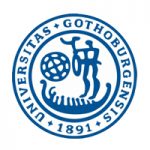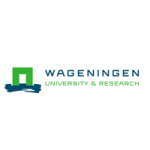项目介绍
The University of Gothenburg tackles society’s challenges with diverse knowledge. 55 900 students and 6 600 employees make the university a large and inspiring place to work and study. Strong research and attractive study programmes attract scientists and students from around the world. With new knowledge and new perspectives, the University contributes to a better future.
PhD in Marine Sciences specializing in cold-water coral and sponge ecology, with a focus on Alaskan deep ecosystems
The University of Gothenburg tackles society’s challenges with diverse knowledge. 53 500 students and 6 500 employees make the university a large and inspiring place to work and study. Strong research and attractive study programmes attract scientists and students from around the world. With new knowledge and new perspectives, the University contributes to a better future.
Type of employment: Fixed-term employment, 4 years
Extent: 100 %
Location: Tjärnö Marine Laboratory, Department of Marine Sciences, University of Gothenburg
The Department of Marine Sciences at the Faculty of Science, University of Gothenburg, was recently launched (July 1, 2015) with the purpose to achieve the vision of “A University with marine research, teaching and cooperation of the highest international class” (https://www.gu.se/en/marina-vetenskaper). The department has about 110 employees – researchers, teachers, PhD students, technicians and administrators. The department carries out teaching and research in the various marine specializations, biology, oceanography, chemistry, marine geology, conservation of underwater cultural heritage, and environmental science. The Department is situated in Gothenburg and at the University’s research stations at Tjärnö and Kristineberg. This position will be based at the Tjärnö Marine Laboratory, 170 km from Gothenburg (https://www.gu.se/en/tjarno).
More information on the Department can be found at www.marine.gu.se
Project Description
Cold-water corals and sponges are found globally, at depths of just a few meters in temperate and polar ecosystems, to well beyond the photic zone and into the abyssal plains of every ocean. Many species are classed as ecosystem engineers, their morphology creating varied habitats that attract a myriad of associated species. As such the diversity of life around these cold corals and sponges can rival many tropical ecosystems. The Alaska region has some of the highest biodiversity and widespread distributions of deep-water corals and sponges in the Pacific region, yet despite their importance to benthic ecosystems ecological knowledge is poor for the majority of species. The general life history characteristics of deep corals and sponges (slow growth, late maturity, infrequent reproduction and recruitment) make them particularly susceptible to damage from anthropogenic impacts such as commercial bottom fishing. Understanding reproduction and recruitment processes is vital to understanding resilience and recovery from damage in these ecosystem engineers (and thus their associated fauna).
This project will utilize a combination of techniques: examining recruitment processes of cold corals using Artificial Reef Monitoring Structures (ARMS) off the Gulf of Alaska; examining early life history processes of the dominant coral in this region, Primnoa pacifica; and using histological techniques to examine gametogenesis and reproductive capacity in deep sponges from the Gulf of Alaska and Aleutians.
This Ph.D. project will work collaboratively with other cold-water coral and sponges researchers both at the Tjärnö Marine Laboratory, and within the National Oceanic and Atmospheric Administration (NOAA) in Seattle and Juneau. This project will require travel and field work, spending time each year at sea on research vessels collecting samples in potentially harsh conditions.
Eligibility
Admission to postgraduate education requires basic and, where applicable, special qualifications. The person who has the basic qualifications for postgraduate education has:
- graduated at advanced level, or
- completed course requirements of at least 240 higher education credits, of which at least 60 higher education credits at advanced level, or 3. acquired acquired knowledge in another way within or outside the country.
Qualification requirements and meriting skills
The successful applicant will be self-motivated, solution oriented, curious and able to collaborate within the larger coral research team and with international partners. They must have excellent written and oral English. Applicants must have a masters level education or relevant experience. Experience with histological processing and/or larval rearing, particularly of octocorals or sponges, would increase the merit of an application, as would experience within deep sea ecosystems and experience on research vessels. Applicant must have excellent fine motor skills and patience for working with small scale biological material.
Assessment
After admission to postgraduate education, you will be employed as a doctoral student. Provisions for employment as a doctoral student can be found in ordinance SFS 1993: 100. The first employment as a doctoral student may be valid for a maximum of one year. The employment may be renewed for a maximum of two years at a time. A person may be employed as a doctoral student for a total of a maximum of eight years. However, the total period of employment may not be longer than the equivalent of full-time postgraduate education for four years.
The university applies local agreements on salary setting for doctoral students.
Appointment Procedure
Please apply online.
The following should be included in your application:
- A short cover letter in English describing the applicant’s motivation for the position, how the applicant meets the selection criteria, and how the application is well suited for the proposed work (max 2 pages).
- Curriculum vitae
- List out publications including accepted masters theses
- Examination certificates and transcript of courses with grades.
- Contact information (phone, email, relation) of two personal references
The highest ranked applicants will be contacted for interviews.
You apply to be admitted to doctoral studies via the University of Gothenburg’s recruitment portal. You as the applicant are responsible for ensuring that the application is complete in accordance with the advertisement and that it is received by the university no later than the last day for application.
For further information please contact
Dr. Rhian Waller (main supervisor)
Senior Lecturer
Email: Rhian.waller@gu.se
联系方式
电话: +46 31-786 00 00相关项目推荐
KD博士实时收录全球顶尖院校的博士项目,总有一个项目等着你!






